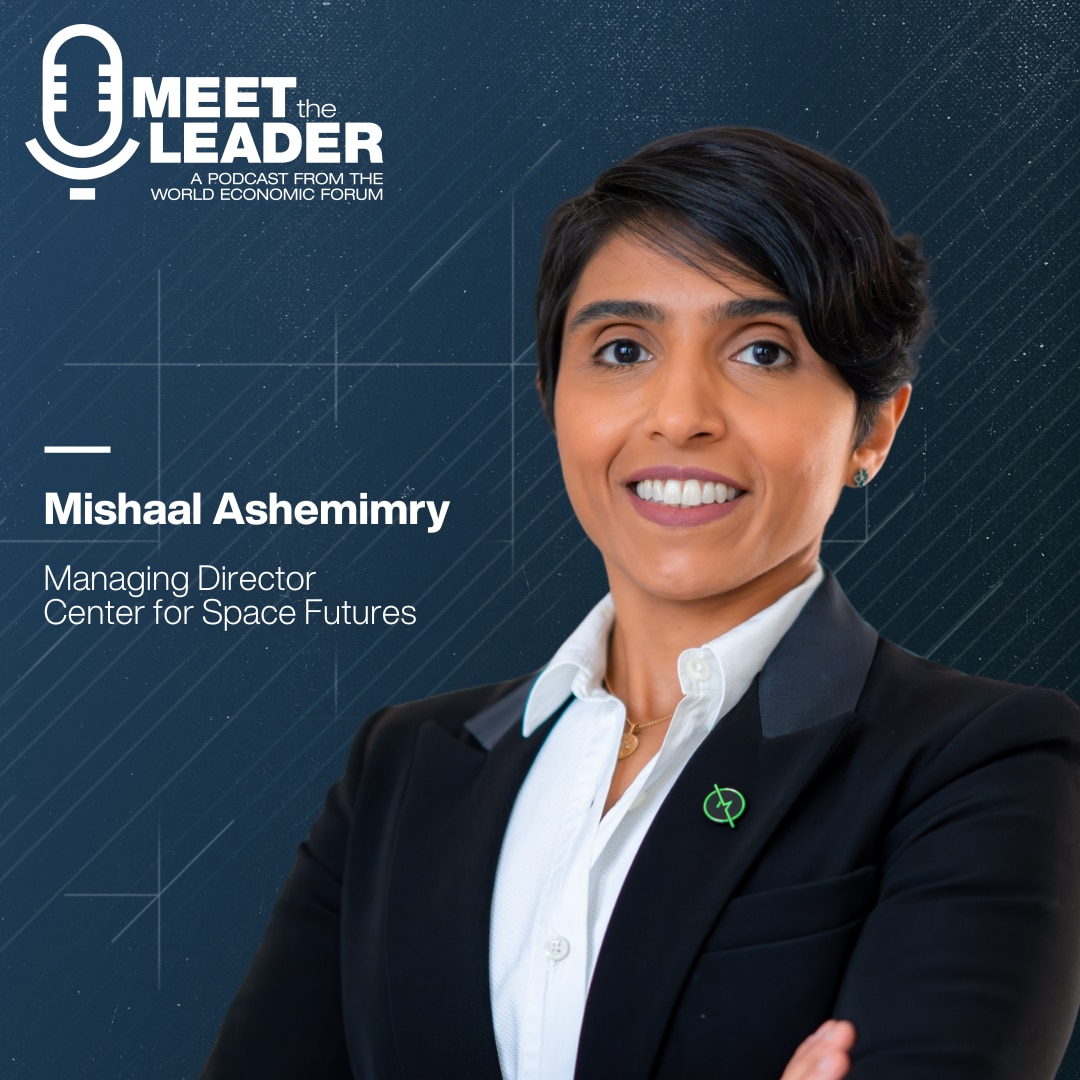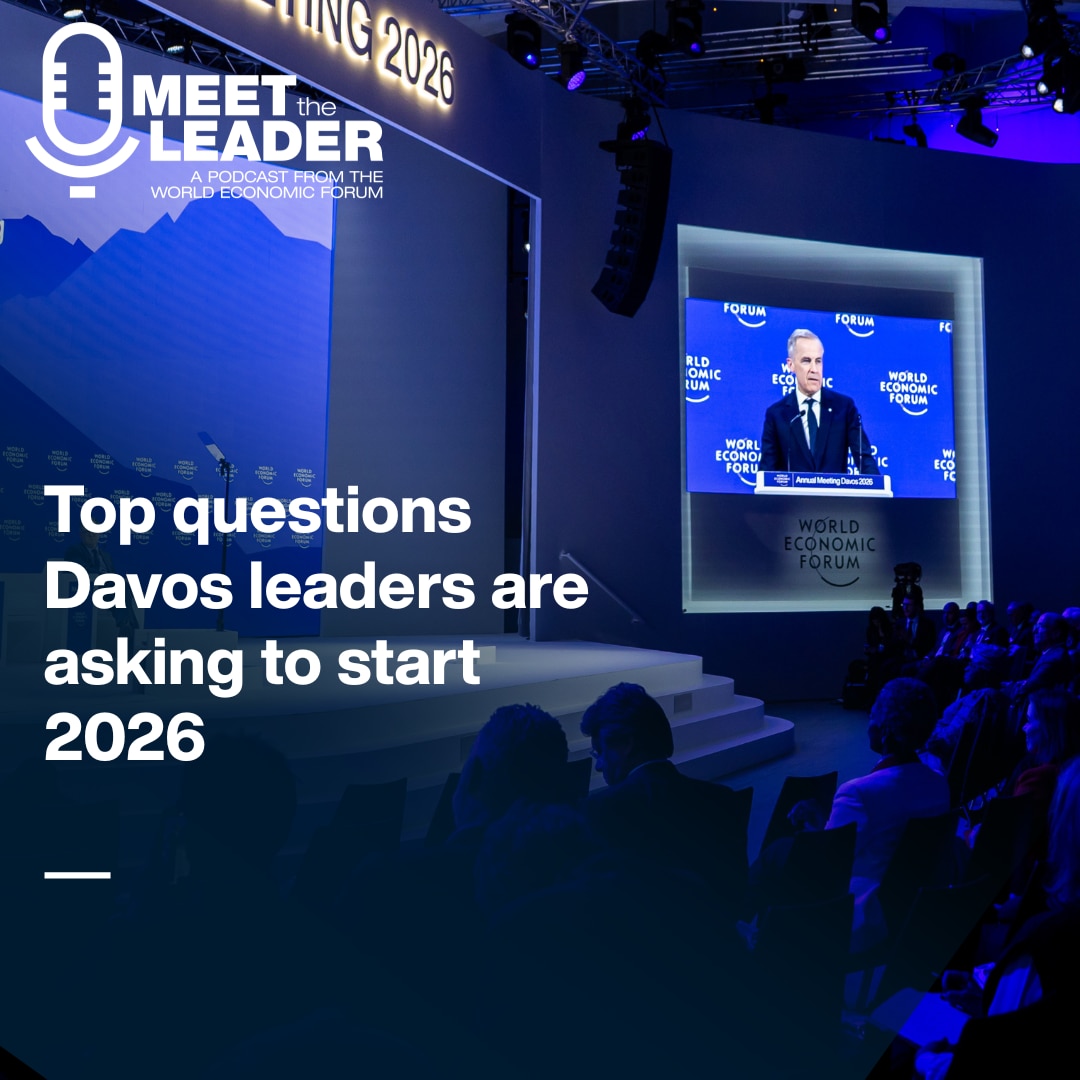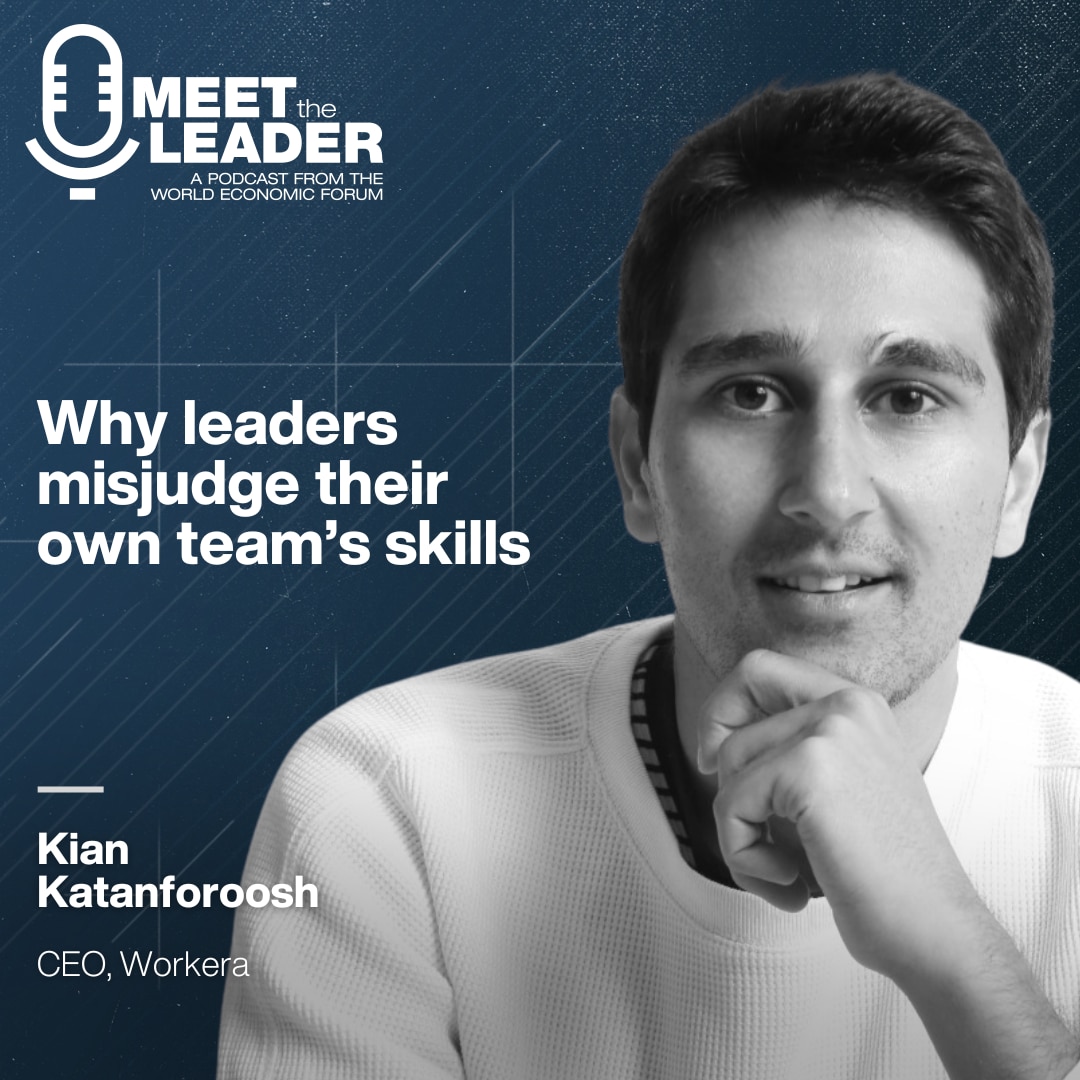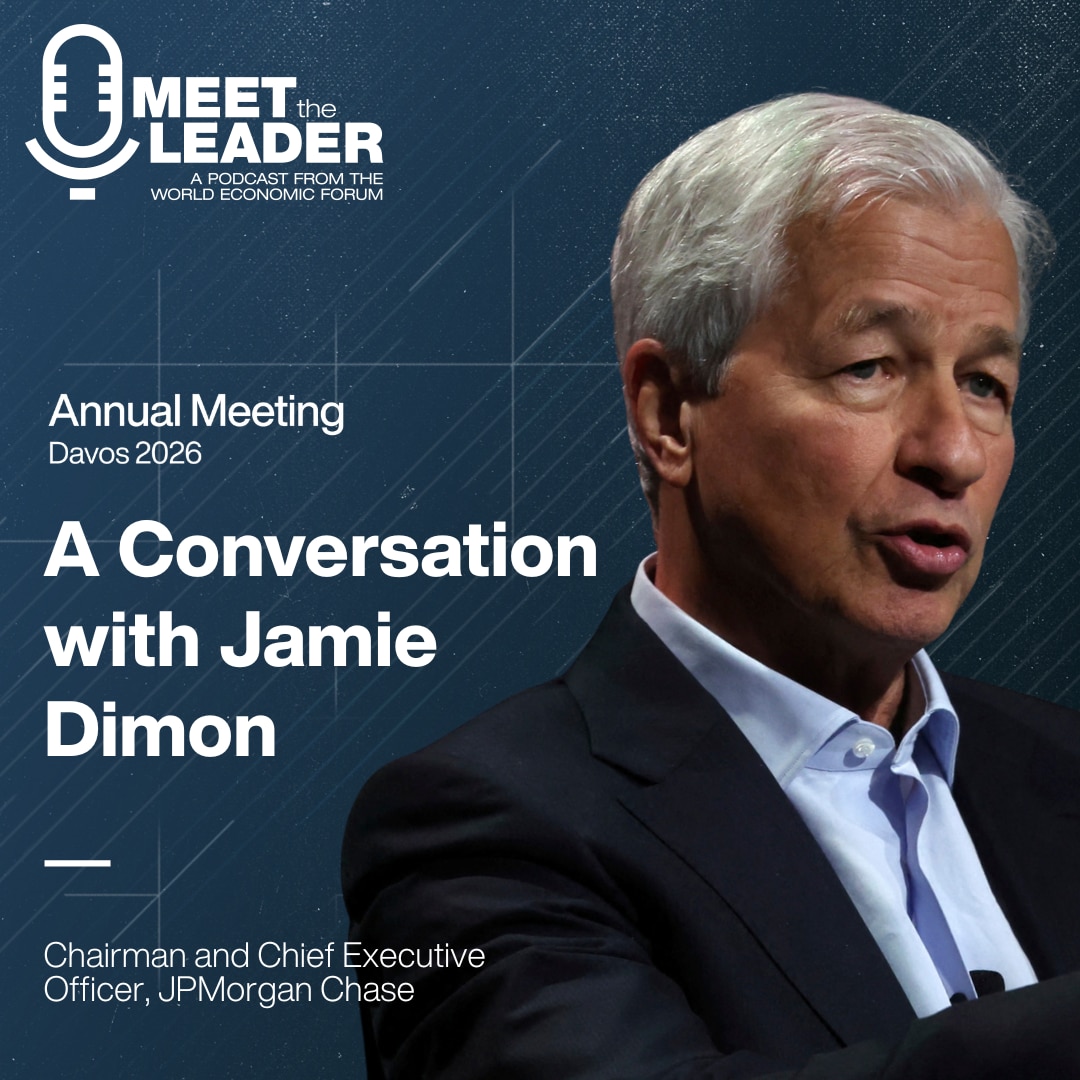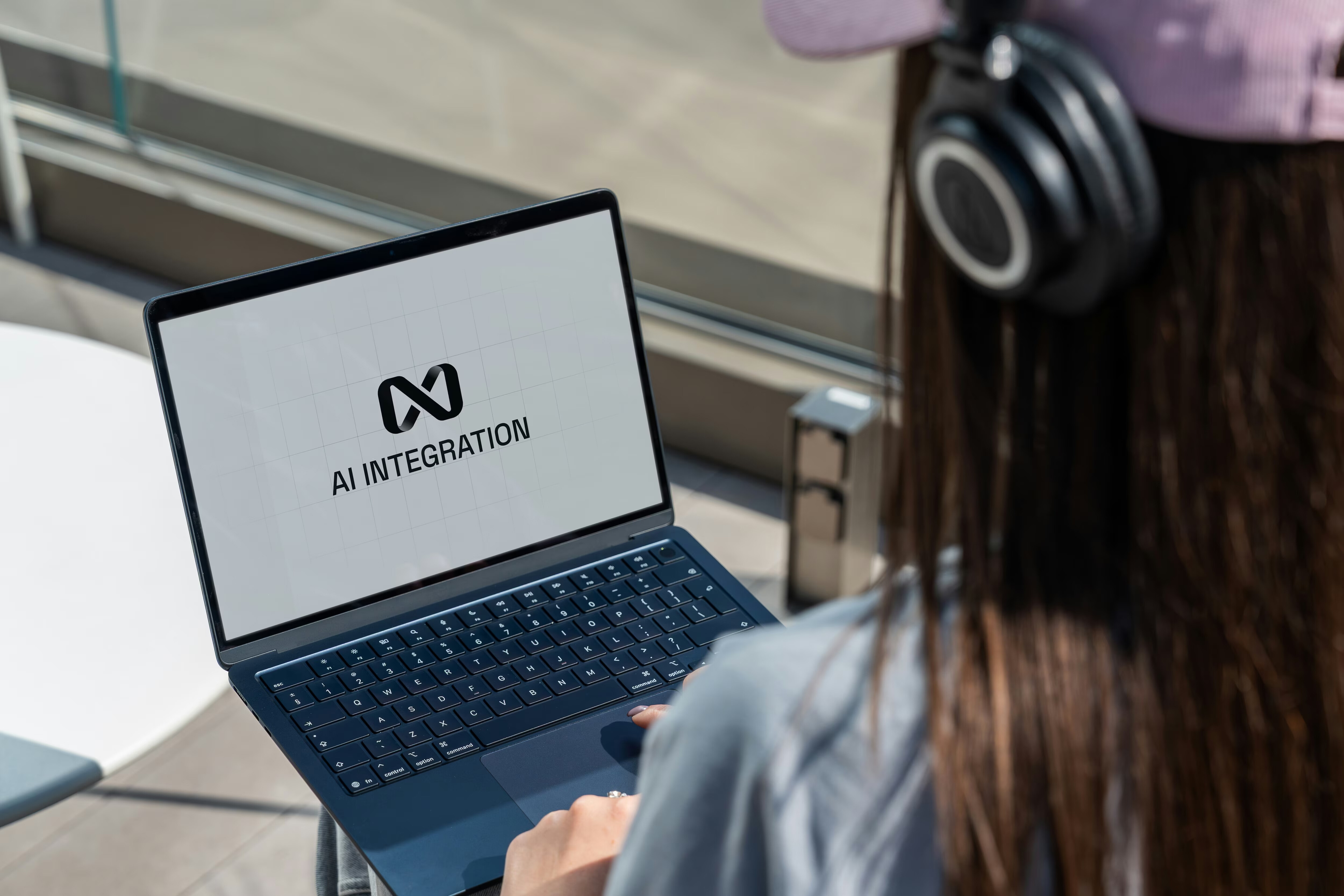Protect employability, not just jobs: Adecco exec on effective coaching and upskilling
ポッドキャスト・トランスクリプト
Linda Lacina, Meet the Leader: Welcome to Meet the Leader. I am Linda Lacina and I'm excited to introduce Christophe Catoir. He is the Global President at Adecco, which is one of the largest human resource providers in the entire world. We're going to talk about the future of work and the big trends that are shaping it and how leaders can make sure that their teams are future ready. How are you Christophe?
Christophe Catoir, Adecco: I'm fine, thank you.
Linda Lacina, Meet the Leader: I am excited to talk about some research that your group put together. Can you talk about it, it's a new global study, Global Workforce of the Future. Tell us about it.
Christophe Catoir, Adecco: This survey is not the first one. We used to have a different edition in previous years, but this time it was more about AI and the impact of AI. You know that we are talking a lot about that. For us, it was important to understand the perspective of our candidates, having 35,000 people interviewed in 27 countries, to understand what does it mean in terms of impact, what is the feeling and the perception of people. So that's what it is to start.
Let's say, some key takeaways just to introduce this survey. The first one is, it's a question of what the impact of AI today, the perception of our colleagues all over the place is pretty interesting because they say today I have saved a lot of time in my perception, talking about one hour per day in average worldwide. The second surprise is about the fact that it's mainly very homogeneous – whatever the industry, whatever the country. I would say, is a gap between the different people is 20% in terms of how much time did you save with AI.
The second key takeaway is about leadership and management. Lots of people were interviewed and they were advocating the fact that even if some of them were afraid – and by the way 13% of them announced that they have lost their job and from their perception it was linked to AI – a lot of them said 51% would be very accurate. So it's an opportunity for us to find more job opportunities or even for 46% to grow inside their own company. It means that the positive mindset of people facing AI is much more important than what we used to see in previous surveys.
Protect the employability of people, not their job, because the job will change but employability will be key.
”You see in terms of leadership. They also recognize that somewhere, they think that for 46% of them, their leaders are educated in us in order to get the right vision and to leverage AI to create a true impact in their industry. It means somewhere, this point is important because you follow the people who have a vision and who have been educated before being educated yourself.
In terms of management for me, one key takeaway, which is one action point for all of us, is each time people feel not secure with AI, they keep very loyal with companies. But you know, not for good reason. It is because they are afraid about long term security in terms of jobs, 40% of them say, I am concerned about what could be the impact on my career plus long term.
And perhaps the last one piece of action plan is about how to upskill our people. Of 35,000 colleagues, only 25% of them has followed one single training course. It means that the vast majority of them don't know exactly what we are talking about. It creates somewhere, some worry, and even for some of them, the concern in terms of health, we are talking a lot about burnout for example. Probably the fact we need to educate properly our people about what could be the impact on those to be to keep employability is key. If I need to summarize in one single sentence, I would say protect the employability of people, not their job, because the job will change but employability will be key.
Linda Lacina, Meet the Leader: And so given that, what can leaders do? I mean, we can start with the folks who might be staying but maybe not growing. What should they be doing? What should leaders be thinking about?
Christophe Catoir, Adecco: Two things. The first one, being very open minded about the impact and being very curious about how it works, how to collaborate, what could be the way to interact as soon as possible, as fast as possible with a counterpart and talking sometimes about a supplier, about a provider, but also some competitors. It's very important. Education is going very fast. I mean, you can't wait too much.
The second one is to educate your employees to make sure that they will build not only insurance for themselves, but the ability to explain how AI could be leveraged in true life. I mean, it's no more a question of technology and science. It's a question of how to deliver your service or your product in a way which is much more simple, much more fast or much more competitive in terms of pricing. Also, seeing some from you, what could leaders have done in order to make it done?
Linda Lacina, Meet the Leader: And on the burnout question, you know, if I'm a leader and I want to make sure, of course, that people are challenging themselves, but I want to be sure that there's a balance. So the people are sort of driving themselves into the ground. What should they be thinking about? Is there a question you should be asking for a rule of thumb on that to make sure that they are having these opportunities without being exhausted?
Christophe Catoir, Adecco: Probably there are two advice. The first one is for people to to be aware that things are changing very fast around them and to keep also very curious and to dedicate time in a very proactive way on their own education is key. You can find a lot of tutorials or things like that even on the website, or you can ask for your employer to get this education piece in order to keep employability. That's the first one.
In terms of culture, it's also probably for the companies, a strong goal for having a continuous learning culture, just because I have an example in my mind, in some industries you have big disruption like automotive and some companies would have liked for social reason to upskill their people in order to be part of the future company, a new company. But lots of them say they have refused to go for it. Two thirds of them, by the way, because they haven’t received any upskilling plans since more than 20 years. And you know what? You don't feel prepared. You are not very trustful on their ability to continue to learn and to adjust yourself.
So, one is about a candidate being proactive, very open minded, very curious – by the way the soft skills we are asking much more than before in the companies. The second chance for the companies to have a culture of continuous learning and there’s still a lot to do on this fact.
Linda Lacina, Meet the Leader: Well, when you talk about continuous learning, there's a really interesting statistic from your survey in fact I'm going to read so I don't get it wrong. It says that for future ready workers who seize opportunities, in an experience with AI invest in their own time to preparing the future are just 11%. So there's just a very a little over 1 in 10 are kind of digging in to this work. How do we grow that number?
Christophe Catoir, Adecco: You know, the two reasons why those people are ready to work, or feel they are ready to work because again, it was like they have to declare you are honored, is because once they have worked on themselves, I mean, they have invested time personally, proactively in order to be ready to work. And at the same time they were working in an environment where the company cares about their employability.
Take care about the education of people, involve them in the plan you have for your company because it's a strategic topic
”When I was talking about 25% of our candidates receiving one single education piece, it means it's nothing else. So we come back to the previous advice take care about the education of people, involve them in the plan you have for your company because it's a strategic topic. Business strategy is also a way I will make it very operational, very tangible to deliver results and trust your people. If you share that with them, believe me, they will take care about the employability. It's crucial.
Linda Lacina, Meet the Leader: If I'm a leader, and so many companies have wonderful resources, or they even have money that people can use a stipend or something that they might be able to deploy in a way that they see fit, right with the approval of their manager. But maybe people still kind of don't know what direction to go. What should leaders be asking for? How they sort of be a culture guide to help employees figure out what might be needed next or how they can maybe level up their own skills in a way that would be an upgrade for everybody? How should they be giving that guidance?
Christophe Catoir, Adecco: I think collaboration is key. Talking about another soft skill. Collaboration is key. I have a good example by the way, talking about Adecco. We have a strategic agenda to refresh, and we did that with our 150 top leaders in the company. And you know what? We have involved our leaders not only to have one full day dedicated to strategy, but we had a second day in order to do a first education and second, to have some working sessions, putting those guys in ten groups of people in order to understand how you can create value based on the learnings you have received in the morning.
But you know what? It was instrumental of the power of people to understand how it works, how to leverage, provided you connect the dots between what is science to start –something very far from you – and the reality of what could bring, as I would say, an impact to day-to-day level. And amongst those key days we had at this convention, the most appreciated one was the second one education in order to build a strategy based on this technology as an enabler. It's a toy example of what to do in many companies, not only for the top leaders, but cascading that at each level as a company till, I would say the first line of the company, very important little note.
Linda Lacina, Meet the Leader: As we were talking about skills and soft skills, in your mind if people were going to shore up one soft skill, a leader listening to this and saying, what should I be prioritizing? What's the most important?
Christophe Catoir, Adecco: It's a tricky question because it depends on many things. It depends on your context, the future of your company. But let's say we need to acknowledge some of them are crucial. Collaboration is key. You can't build your strategy or your delivery model alone. You need expertise in many ways in order to have the things that you can. You can do everything alone, but not only alone in a very fast way. And there's a speed of what we have to do is so important to build a competitive advantage. So collaboration is key.
Collaboration is key. You can't build your strategy or your delivery model alone … Creativity is also important.
”Second is how to solve problems. You know, AI can help a lot in managing many different things, but some things which are more like human skills are more challenging for AI to deliver. So solving problem, taking into account a culture, the context of people in front of you is something which is something to focus on. Creativity is also important. In a world where work is a repetitive task, you can automate or manage that with data. You need to find a way to differentiate yourself from the others. So some show examples of those one, but after, let's say if the company is very emotional, which is a case also of our company, for example, is this muscle of having people very strong in building one relationship with people like trusted people.
Finding a way to create this proximity is a crucial social skills where you can educate people because even if you have been educating them as a way, when you are in front of this challenge, when you meet a lot of people, I think this culture, you know what you change you move your person. That's the reason why, for example in education piece apprenticeship is so well appreciated in many countries because you combine, I would say, what are hard skills you need to acquire that you understand how to evolve in an environment which is different from one company to another one. And by the way, very unstable. So changing very fast.
Linda Lacina, Meet the Leader: I'm curious, you talked about the apprenticeship model, right? Which is classic. But I wondered, in your opinion, do you think that there is a risk of people having forgotten a little bit about it because maybe it's not necessarily something that is in place in their workplace, especially as we become a little bit more task-driven and will be more task-driven. And of course, a lot of the science says that, you know, AI is going to be prioritizing tasks, maybe above other things. My question to you is, do you think that we are losing the apprenticeship model? And if so what would that mean?
Christophe Catoir, Adecco: No, I think the contrary. I think a partnership is increasing all over the place. You have new legislation in many geographies. I know that the US, for example, is talking about apprenticeships more than before. France did a lot some few years ago and it's here to stay. I mean, what is nice with an apprenticeship is you can have a great education. The question is how you leverage not only your knowledge, but also the key principles you have been learning in order to position that in front of a problem to solve in context.
So the beauty of an apprenticeship is when you are talking about AI and you understand the power of data and why data can create, I would say, a big impact. And you arrive in a company for an interview and you don't know how this company is driving its sales forecasts, for example, and where to target their product campaign. If you understand the company because you have taken time with the marketing effort and you were part of this day to day life, and on top of that, you have the key principle. You will connect the dots and you can be proactive, you can be creative, otherwise you are only an expert and you just execute some way out the plan.
I have another example. Apprenticeship is good also to do inclusion. I remember with a model in France, which is one of our subsidiary. We have managed a cohort of 12 refugees coming from different places in the world for a Salesforce administrator position. Believe me, it was incredible because those guy talking different language where you have to learn language, the French and English one. But on top of that, being able to be educated for Salesforce, like the tech, I would say your education. A very successful first cohort, Salesforce has decided to go for a second one. That's a power of apprenticeship. Probably if you are in a high school and you have a very exclusive recruitment process, I'm not sure you have the same chance to be inclusive. You can be inclusive because you can test and you can leverage not only what you will learn, but the way you express your talent in the marketplace, which is what we are looking for the company today.
Linda Lacina, Meet the Leader: As you work with others on your teams and you try to collaborate, but also say, here's my vision and here's what we're looking for. Here's our brand of how we do this. What traits, or steps, do you take for an apprenticeship as a leader?
Christophe Catoir, Adecco: I mean, firstly you try to be sensible because people are looking at you to understand if it's analogy for a strong conviction. I need to say somewhere I was interned for Adecco. So I mean, I have somewhere in my past this education piece. I've been learning to work in a company thanks to my employer today.
Instead of looking for a famous candidate with three to five years of experience graduated from the best schools, you're looking for motivation, true talent or potential to be successful and you put the energy into the apprenticeship.
”The second one I've taken some responsibility in France to create a global apprenticeship network, and now I'm part of the board of this important institution. And, you know, when you give the opportunity to people to think that it could work, they are very vocal in front of their clients in our industry, lots of our colleagues face scarcity everywhere. But you know what? It's not to just a statue. It's you have some solution in front of that.
But it means you sometimes you need to change your mind instead of looking for a famous candidate with three to five years of experience graduated from the best schools, you're looking for motivation, true talent or potential to be successful and you put the energy into the apprenticeship. It works very well.
So for sure, you need to educate companies who don't choose to do that. But I’ve seen so many companies where I would say they are approving the concept and stopping to work like this. In France, we today we recruit 6,500 apprentices per year for the beauty of our client in many different industries. Now it's a proof. It's not a concept. I think to demonstrate that base of figures, basic facts. It's also very important.
Linda Lacina, Meet the Leader: In my world, in media and in the olden days, you would sit in a bullpen and the junior reporter would be able to hear the most experienced person doing an interview and understand how they're talking to people, how are they navigating that and how are different teams talking to each other? You understand relationships, how work gets done. It can be a little more challenging when people are maybe more remote.
There's great opportunities of remote work, but there's also that inability to see all the pieces coming together. And maybe as a younger person or even a person neutral organization, it can be hard to see those relationships play out and understand expectations because that sort of modeling is happening elsewhere. What can those companies do? Great to remote, great to embrace that. What can they do to make sure that there's still that apprenticeship piece and people are still being able to have people as models for them? What can they do?
Christophe Catoir, Adecco: I think you're right. Mentorship is probably the best way to learn how to do things. Whatever the knowledge or the expertise you have acquired in your first education piece. Remote work, it's something which is part of the employment market now. It's something which is well adopted in many places. And by the way, it the intensity of remote work depends on one's who controls the company, coming back to that, and also the job you are you are delivering each day.
But if you are talking about induction of young talent, you need to have people with a very strong proximity because we used to say, trust your people. That's part of the way to go fast, to trust your people, to empower your people, but you can empower you people if you coach them, so you don't ask them to execute a task. You just give them fulfillment to achieve your goal to achieve. And after you take care of what's your plan? Can you explain to me how you visit with them if it's in a safe spot, for example? And you know, those feedbacks are great. And what is great with the technology today, it's like you are reverse mentoring. ChatGPT was a good example. You know, such a lot of people with a lot of seniority were asking their internals and colleagues to educate them how to play resource application because it was part of their natural education for the young talent.
We used to say, trust your people. That's part of the way to go fast, to trust your people, to empower your people.
”And that is the best way to convene or how to have an agenda to create good integration and also to have the glue of the culture. You can't transmit the culture if you are working from home all the day with back to back digital meetings. It can’t work. So it's completely fair what you say. If you want to get some loyalty, strong engagement and cultural fit, you need to have hybrid. And if there is a level of a hybrid you need to have as a company, depends on your coaching and emotional company like Adecco, you need to have three days or four days.
In other companies, it could be OK to have one or two. The reality of trying to manage a principle to adopt, if people are joining the office, you should organize something because that's what is new. Because if you're in front of your computer alone during all the day and each day is the same there's no reason why, mobility between your home and the post office, it's such a good way to collaborate. You need to organize a little bit as a manager. And it's probably new.
Linda Lacina, Meet the Leader: What are the signs that they're being coached, as opposed to being told what to do. So maybe people might need to have a gut check. A leader might need to check: are they giving people enough space to do their work? But how can they look around their office and say, hey, does it seem like things are going well?
Christophe Catoir, Adecco: I think if you want to understand what is the level of engagement somewhere, look at the absenteeism, look at the turnover. You know everything about that. You know that absenteeism in many major countries has ramped up in Spain, in Germany – we have multiplied absenteeism by two in those countries. So it means the relationship to work should be based on engagement and the daily connection you have with the organization a leader. So it's a good illustration of what your company's saying or not saying, same when you work with people. Your reputation is based on what people are talking about your company, their company. And if it's positive, you have more candidates. If it's negative, you have less candidates. If you don't know, it's not good.
If you want to understand what is the level of engagement somewhere, look at the absenteeism, look at the turnover.
”So, it’s important to understand what the level of connection and the glue you are between the company and the employees. So, this one is important as is visiting your countries. I used to do that in many countries in the world. And you can see if you have the level of energy, the enthusiasm, the excitement, you can feel it. You know, we are humans. That's why with robots, it's nice to do some things, but some of us need to keep in touch with your people and you understand immediately because it's a chemical part of the job. If people feel comfortable and well-being is OK, or if you have some problems to manage as a company.
Linda Lacina, Meet the Leader: You have been with Adecco since you were an intern. How have you change as a leader? What about something that you do now that would not have occurred to you when you first walked in the door?
Christophe Catoir, Adecco: I think it's a leadership style, probably talking about education, spending more time in order to be up to date with what is around is much more challenging than before. Dedicating more time first since evolving so fast that to keep up to date, it's more investment that we never did before. The paradox probably, and visiting the operation much more the today than before, and I think probably less a path for executions and a path to these kinds of frames, a goal to achieve and to empower much more in the people than before.
To keep your people engaged, you need to give them trust and safety.
”Probably it's linked to the fact that today, to keep your people engaged, you need to give them trust and safety. And when they feel that the environment is a proper one, whatever the generation, we have been talking a lot about the generation. I think it's not a question of generation is a question of leadership. People feel really more engaged and they commit much more than what they had the year before. I think those two things are proximity on one side with a lot of empathy, a lot of proximity and sharing as much as possible feedback, coaching pieces, etc. is one. And so sometimes when taking time for your own education with a lot of humility, I strongly believe in that.
And perhaps a third one before I was talking about the fact that you wanted to put everything internally before. Today when you when you want to build a competitive advantage, speed is much more important than before. So you need to partner with the best around you and create a community of people, of companies who are able to create together an engine for growth and a competitive advantage. Before it was okay to have insourcing, outsourcing, it was a choice. Today, I'm not sure it's a choice like before.
You need to partner with the best around you and create a community of people, of companies who are able to create together an engine for growth and a competitive advantage.
”Linda Lacina, Meet the Leader: Is there a skill that you are looking to extract and get a little 5% better?
Christophe Catoir, Adecco: Well, probably much more than 5%. It's another paradox. We say you have much more prediction with data so you can anticipate needs, anticipate the cycles. At the same time, you need to anticipate and to schedule much more than before. You can't just build your management on intuition. You need to structure because that's probably a counterpart of having many partners in order to draft one single agenda.
Collaboration takes time. So you need to organize this collaboration to make sure that all the components are working in a very structured way to deliver what you have to deliver. Like speedboats in a very fast way. Before it was probably more intuitive. So it doesn't mean that you don't need entrepreneurship, creativity, etc. But the execution plan if is not well addressed, you can have some better price at the end.
Linda Lacina, Meet the Leader: I’ve one last question for you, sir. Given the fact that you have been with Adecco for all that time, is there a piece of advice that maybe a mentor or someone that you really respect gave you that you've really been grateful for?
Christophe Catoir, Adecco: Probably a piece of advice would be. Trust the people you have around you and leverage diversity. And when you start, you never know exactly how to work with such a lot of diverse people. But when you are starting to experiment that, you understand why nobody's perfect. And the first reason is you. And when you have understood that, but you have also leveraged the strengths of having diverse people building on an ambition the best goals to achieve. You understand it's very powerful.
Probably a piece of advice would be. Trust the people you have around you and leverage diversity.
”And it's like I remember perhaps just as a joke, my wife said, I would not imagine to be a manager. It's 90% problem to solve and 10% pleasure. I say yes, but the beauty of the 10% pleasure, it's not science. So it's a chemical aspect. You have to drive as a team. It's not an easy one. But when you are successful dealing with that, you are so proud not for yourself, but for the team.
Linda Lacina, Meet the Leader: Well, thank you so much, Christophe. This has been amazing.
Christophe Catoir, Adecco: Thank you.
Linda Lacina, Meet the Leader: For our viewers and our listeners for more episodes of video podcasts from Meet the Leader go to the World Economic Forum's YouTube channel and for more podcasts and transcripts. Go to: weforum.org/podcasts/
Staffing giant president Christophe Catoir of Adecco Group got started at the firm as an intern. He’s had a front-row seat to how work has evolved since. He shares the insights from the firm’s annual skilling report, giving compelling statistics on the percent of workers globally trained in AI so far and what’s needed to keep workers both engaged and employed as upskilling cycles accelerate. He also shares his thoughts on how leaders in remote and hybrid workplaces will need to reevaluate how they coach and train teams, how apprenticeship thinking can help, and how his own career journey has changed him as a leader.
トピック:
仕事と働き方の未来その他のエピソード:
「フォーラム・ストーリー」ニュースレター ウィークリー
世界の課題を読み解くインサイトと分析を、毎週配信。
もっと知る 仕事と働き方の未来 すべて見る
Fabian Stephany
2026年2月13日


